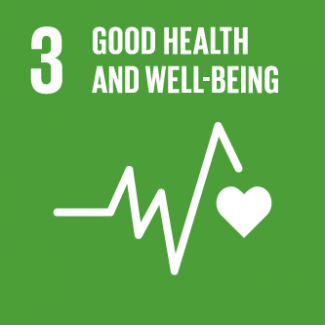Approximately 122 million people in Nigeria lack access to adequate sanitation. At the same time, the Nigerian hygiene and personal care market is experiencing rapid and dynamic growth, providing lucrative opportunities for beauty businesses from around the region and beyond. The market is currently worth an estimated 3 USD billion, according to Euromonitor International. Sub-Saharan Africa currently accounts for just 3% of global beauty products sales but that share is expected to grow at double the rate of the market.
Capitalising on this, Aimcare promotes personal hygiene and instigates behavioral change by engaging in hygiene education with Nigerians. The enterprise offers the Aimcare Hygiene Kit, a well-assembled toilet utility pack designed to meet the style and comfort of users. It sells these packs for USD 4 to private boarding schools so parents no longer have to go through the stress of shopping for toiletries for their children returning to the dormitory.
Using a cross-compensation model, profits made from the kits’ sales are used to promote Aimcare’s Extensive Hygiene Education programmes in rural communities. These include a range of products and activities, including health talking books that help women and children in rural communities to learn important health and hygiene topics in their local language, as well as maternal/birth kits to ensure safer delivery for mother and child in traditional birth attendant centres.
Since its establishment in 2017, Aimcare impacted 3,000 young Nigerians with modest investments that has already created full-time jobs and distribution opportunities, mainly for women. It seeks to mobilise 130,000 USD to provide 50,000 women with the hygiene kits, create 100 income generation opportunities for 100 women distributors, educate 300,000 low-income rural Nigerians on hygiene, sanitation and waste management practices, and facilitate access to clean water and sanitation to 200,000 low-income Nigerians in rural areas by 2024.
Since access to individuals has been hampered through COVID-19, Aimcare has been finetuning its business model to primarily target institutions and now works with primary healthcare centers, medicine stores and pharmacies to provide their products and services to the communities. It also connects these facilities directly to global health startups looking to expand their products into new markets. It has, for instance, partnered exclusively with a Czech prescription glasses company to provide affordable glasses to pharmacies and medicines stores across Nigeria. Aimcare also provides inventory financing and management for these facilities.
This case study is sourced through the UNDP Business Call to Action (BCtA), whose members are confirmed to engage low-income people in core business, be commercially viable, be built for scale and to advance the SDGs, and are guided by the BCtA Code of Conduct. Learn more about the case study on the enterprise’s BCtA membership site.
















